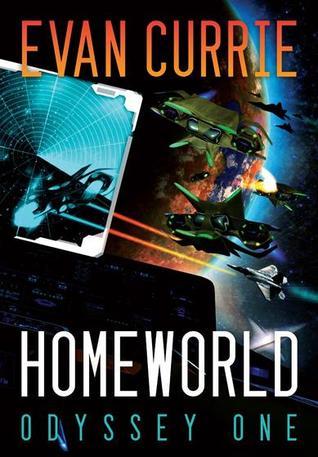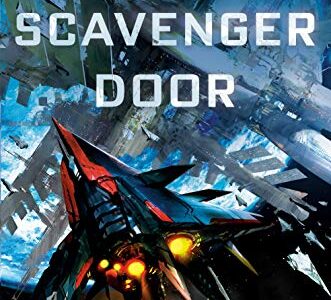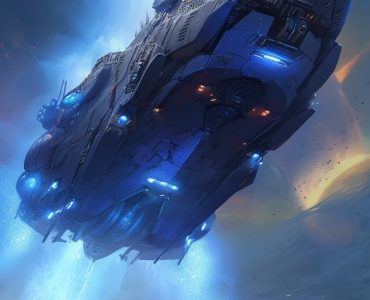Pros
- More exciting action and dire consequences in the story
- Plot moves toward a consequence and a revelation that is intriguing
Cons
- Earth’s technology seems a bit too much considering the gap in time
- Not much revealed about who the Drasin are in this third book
Homeworld Review
Homeworld by Evan Currie is the exciting continuation of the previous book, The Heart of Matter where Captain Eric Weston finds himself defending the home world of humanity against certain extinction by the rampaging Drasin.
There’s no lack of suspense and action in this book. Indeed, soon after the story begins, there’s just no rest for humanity and Captain Weston as they plan a seemingly futile resistance against the galactic scourge known as the Drasin.
Whereas the previous two books saw space combat on a smaller scale—no more than, say, a flotilla of ships at once—this book finds humans attempting what’s called an “Alamo” stand against a swarm of Drasin ships that threaten the humanity’s only solar system.
Space combat abounds in this story, and the different tactics used by Captain Weston and his handful of pilots keep the suspense high and the story moving along at a quick pace. Missing, however, is the ground combat seen in the previous book, but the next one promises ground combat and more.
What scant details readers are shown regarding the Drasin only increase the mystery and intrigue that surround the drones. What they are, who created them, and why they are so set on purging the “red” bands from systems are still not addressed, making what little available information even more tantalizing.
The epilogue of the story reveals some interesting answers that may be related to the super intelligent being on Ranquil, but it raises far more questions than answers. Who, or what is that being that runs Ranquil? In The Heart of Matter, the author suggests that this being was once worshipped as a god, yet its interactions with Captain Weston show that it’s far from omnipotent.
One drawback in the story is the narrator’s insistence that human technology is that powerful—the supposed gap between humanity’s first extrasolar foray and even the Priminae, is more than ten thousand years. And even the Priminae are not as advanced as their progenitors, making the distance in time and space even more pronounced.
Currie’s discussion of some physics, like the frequency of light, and the mention of long waits during space battles, give the story a sense of realism that is often missing from military science fiction stories. There’s just enough detail, but not so much that it bores readers and detracts from the story.
Homeworld by Evan Currie will keep fans of Odyssey One turning the page until the very end. Much like the humans in the story, readers won’t be able to rest until they learn of the fate of the people in the story.
Read reviews of other exciting science fiction stories below.



